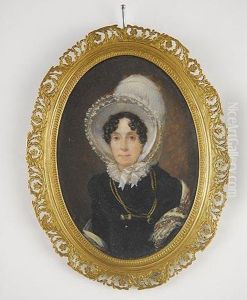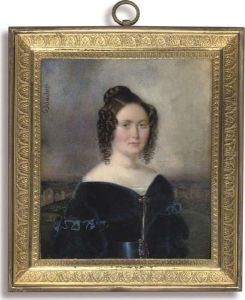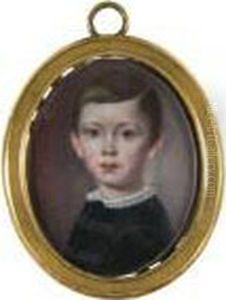Jean Edme Pascal M. Delacluze Paintings
Jean Edme Pascal Martin Delacluze, commonly known as Etienne Delacluze, was a French painter, critic, and art historian born on February 22, 1781, in Châlons-sur-Marne, France. His career was multifaceted, and he is often recognized for his contributions to the world of art during a transformative period in French history, which spanned the late 18th and early 19th centuries.
Delacluze initially trained as a painter under prominent artists such as Jacques-Louis David, a leader in the Neoclassical movement. Influenced by David's style and revolutionary ideas, Delacluze embraced the neoclassical aesthetic, which emphasized clarity of form, sober colors, and historical subjects. Though he did produce artworks, it was his writings and his role as an art critic that cemented his place in the annals of art history. His association with David and other artists of the time provided him with a deep insight into the French art scene, which he documented meticulously.
Throughout his life, Delacluze witnessed significant political upheaval, including the French Revolution, the Napoleonic era, and the Restoration. These events shaped his perspectives and informed his critical work. His most notable literary contribution is his book 'Louis David, son école et son temps' (1855), which remains an important source for understanding French art of the period and the Neoclassical movement. The book not only offers a biography of his former teacher but also provides a personal account of the art and politics of his era.
Delacluze's role as an art critic was influential in the promotion of romanticism in art, which was emerging as a reaction against the strict formalism of Neoclassicism. His openness to new artistic movements and his intellectual curiosity enabled him to engage with a wide range of artistic styles. Despite his advocacy for romanticism, Delacluze maintained a balanced view and appreciated the merits of various artistic schools without being dogmatic.
As an art historian, Delacluze's work was characterized by his detailed observations and his ability to contextualize art within the broader spectrum of French society and politics. His writings provided a firsthand account of the evolving artistic tastes and cultural shifts of his time, offering invaluable insights for subsequent generations of art historians.
Etienne Delacluze died on June 8, 1863, in Paris. Today, he is remembered not only for his own paintings but more so for his critical writings that continue to influence the understanding of French art history. His legacy lies in his ability to articulate the complexities of the art world during a time of great social and political change, making his work an indispensable resource for scholars and enthusiasts of French art.


